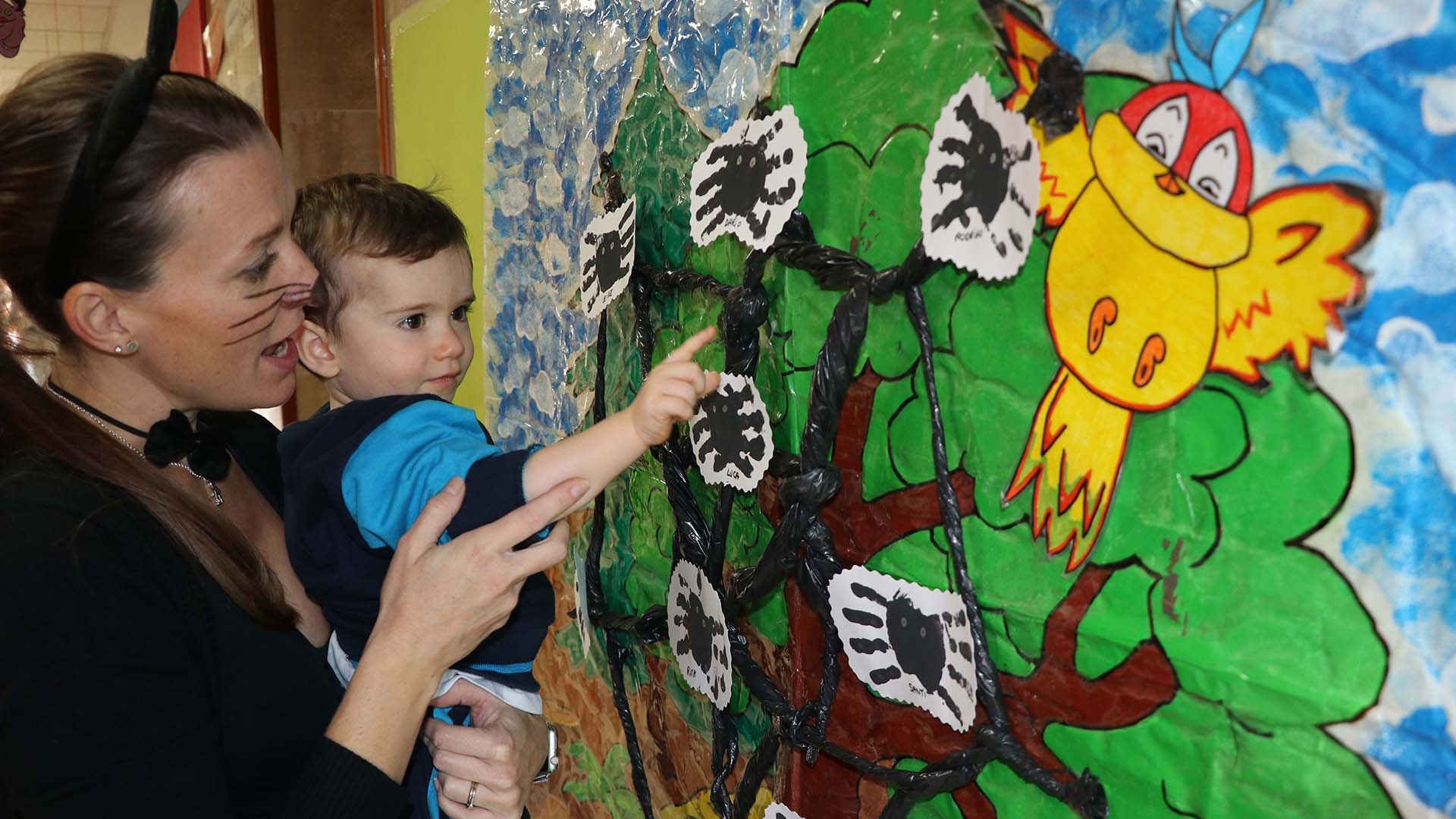Early schooling, especially in pre-primary education, is fundamental for children’s all-round development. This stage lays the foundation for their academic, social and emotional future.
The lack of access to early childhood education in Spain and the absence of compulsory schooling at this stage can lead to unequal educational opportunities and limit the development of fundamental skills in children.
PROBLEMS OF EARLY SCHOOL FAILURE
NEGATIVE IMPACT ON CHILDREN'S COGNITIVE AND SOCIO-EMOTIONAL DEVELOPMENT
Lack of early schooling can negatively affect children’s cognitive and socio-emotional development. During the first years of life, the brain is particularly receptive to learning and stimulation. This is why lack of access to educational environments can limit their holistic development.
UNEQUAL EDUCATIONAL OPPORTUNITIES
Lack of access to early childhood education can exacerbate social and economic inequalities. Children from families with limited resources are less likely to have access to quality early childhood education programmes, perpetuating the cycle of socio-economic disadvantage.

AWARENESS OF THE IMPORTANCE OF EARLY SCHOOLING
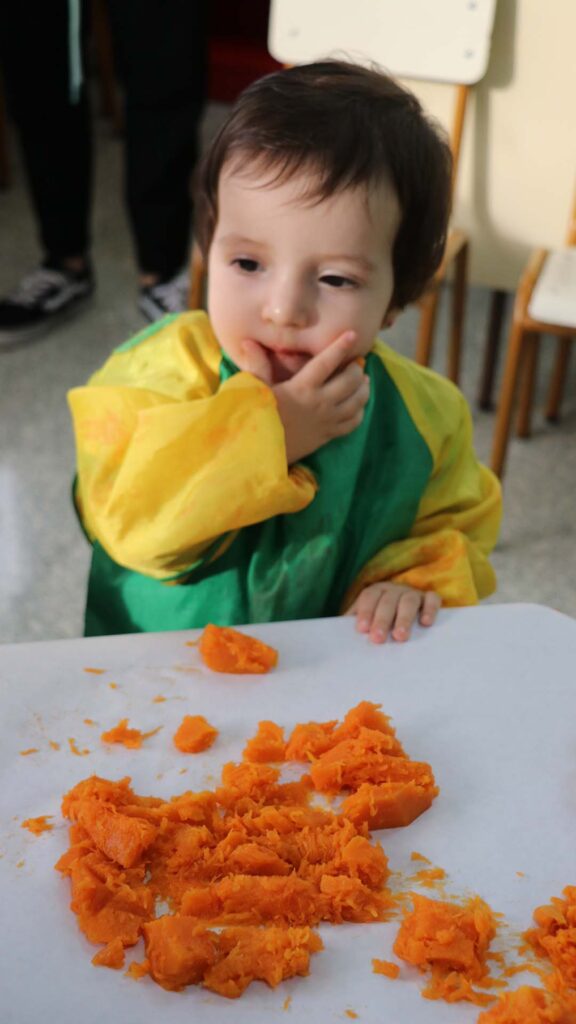
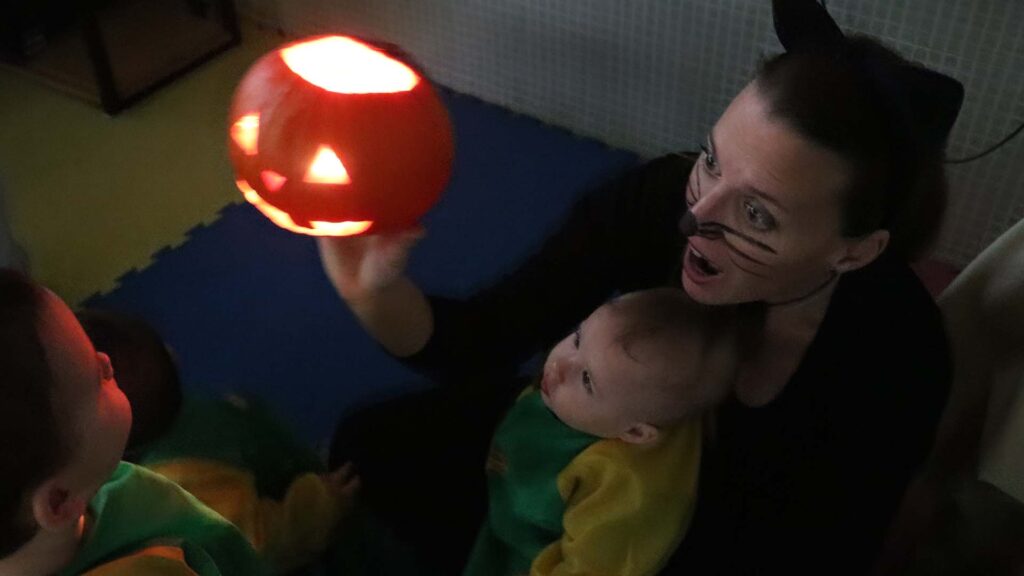
ALARMING STATISTICS ON LIMITED ACCESS TO EARLY CHILDHOOD EDUCATION IN SPAIN
The most recent figures reveal a worrying situation regarding access to early childhood education in Spain. According to data from the National Statistics Institute (INE), approximately 20% of pre-school children are not enrolled in any centre and do not have access to early childhood education. This gap in access to early education can have long-term consequences for children’s development and academic performance.
On the other hand, according to a recent report of the Organisation for Economic Co-operation and Development (OECD), Spain is below the EU average European Union in terms of coverage in the infant education cycle. While in countries such as Sweden and Denmark,in Spain, more than 90% of pre-school children attend school, while in Spain the figure is around 80%.
EDUCATION EXPERTS' VIEWS ON THE BENEFITS OF EARLY SCHOOLING
Recognised experts in the field of education and child development support the importance of early schooling. María Ángeles Criado, Professor of Developmental Psychology at the Complutense University of Madrid, stresses that “early childhood education provides an environment rich in stimuli that favours the integral development of children, especially in terms of socialisation and the acquisition of emotional skills”.
For his part, Juan García, pedagogue and author of several books on early childhood education, emphasises that “Early schooling not only prepares children for academic success at later stages of their education. It also provides them with the opportunity to develop social and emotional skills that are essential for their future well-being.
These experts agree that compulsory schooling at the early childhood stage would play a crucial role in preparing children to face the challenges of the modern world. At the same time, it would foster their personal growth and their ability to relate to their environment in a healthy way.
PROMOTING COMPULSORY SCHOOLING AT THE EARLY CHILDHOOD EDUCATION STAGE
PROPOSALS TO EXTEND COMPULSORY SCHOOLING FROM THE AGE OF ZERO ONWARDS
Education policies should be reviewed and legislation should be passed to ensure compulsory schooling at the early childhood education stage. This would ensure equitable access to education from an early age and contribute to reducing social and educational inequalities.
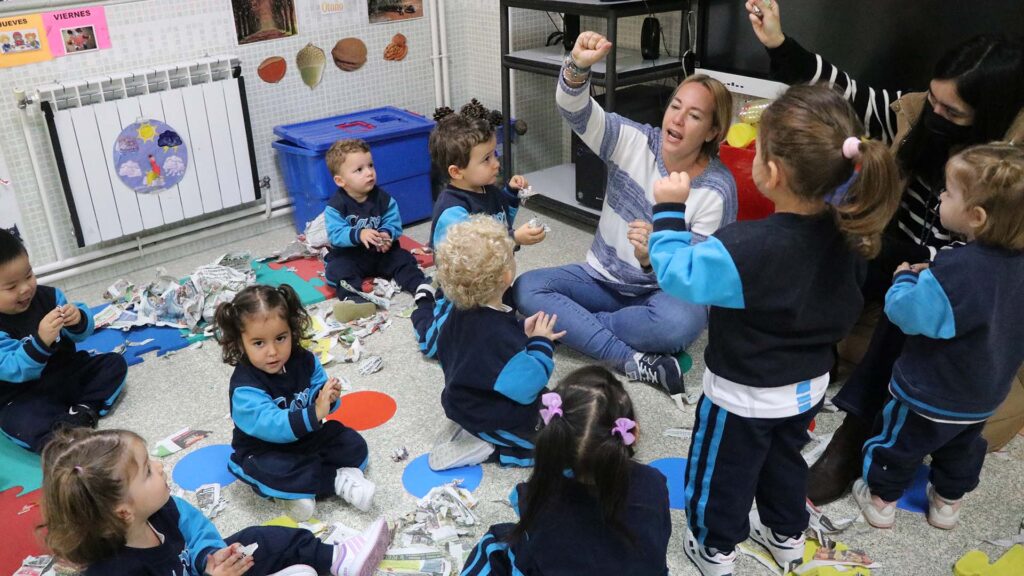
SOCIAL AND ECONOMIC BENEFITS OF INVESTING IN CHILDREN'S EDUCATION AS A UNIVERSAL RIGHT
Investing in children’s education as a universal right has individual, social and economic benefits. Children who receive quality early childhood education have greater opportunities for future academic and employment success, which contributes to the sustainable development of society as a whole.
Inquiring, expressing, representing and sharing from the first year of life, allow us to have a quality education based on values.
SUPPORTING SCHOOLING: ROLES OF FAMILIES AND THE EDUCATION COMMUNITY
THE ROLE OF FAMILIES IN SUPPORTING EARLY SCHOOLING
Families play a crucial role in supporting their children’s early schooling. It is important that parents are informed about the importance of early childhood education and are actively involved in the educational process of their children. This includes providing a stimulating home environment, encouraging exploration and learning, and establishing fluid communication with educators.
COMMITMENT OF THE EDUCATION COMMUNITY TO PROMOTING EARLY SCHOOLING
The education community, including educators, principals, school support staff and other educational institutions, must work together to promote early schooling. This involves sharing resources, good practices and successful experiences, as well as working together to address barriers and challenges that may arise in the early schooling process.
Our aim is to prepare our pupils for the International Baccalaureate Diploma Programme with every guarantee of success.
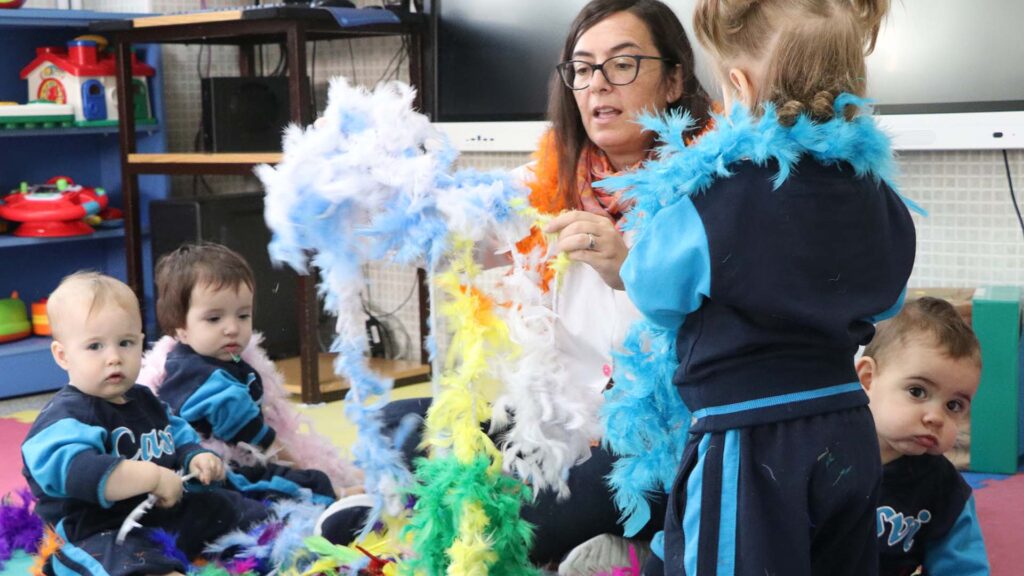
EARLY SCHOOLING IN CASVI VILLAVICIOSA
The first years of children’s lives are the most important period of their development and stimulation, both cognitive and sensory. Thus, the plasticity of the brain is determined by the experience it has acquired.
Starting from the premise that we can always learn, we should never stop trying to learn new things, and a child, from the moment of birth, takes advantage of any moment to do so. If, in addition, it is provided with instruments, resources, situations and means in different contexts, this first The early childhood education stage becomes the most appropriate and effective stage for their development.
That is why early schooling for children from their first year of life is so important. Schooling in which the quality of education, the methodology and the school environment become the fundamental pillars of meaningful and lasting learning.
IMPORTANT FACTORS FOR THEIR DEVELOPMENT THROUGH SCHOOLING IN THE 0-3 YEARS STAGE.
oral communication:
Oral communication promotes coexistence and thus the acquisition of values.
Oral language, whether in Spanish or English, allows us to develop the attitude of knowing how to listen, to be able to interact and to be able to relate to others. This will favour the development of attention.
Non-verbal communication
Non-verbal communication is that way of connecting with others: gestures, expressions, crying, smiling, looking at them...
All of this makes eye contact, tone of voice, gestures of approval, astonishment, anger, surprise, illusion, etc. very important.
Body language
Body expression, crawling, the beginning of walking, balance, coordination, manual dexterity and muscle tone are strengthened through different activities that are developed during the school day and that allow the acquisition of habits and routines that will favour self-confidence.
IB METHODOLOGY FROM THE FIRST CYCLE OF THE EARLY CHILDHOOD EDUCATION STAGE
The constructivist methodology of the International Baccalaureate used in Casvi Villaviciosa from the first cycle of Infant School, through Primary School, Secondary School and Diploma Programme, helps the successful completion of all the above objectives.
“Our aim is to prepare our pupils to reach the International Baccalaureate Diploma Programme with every guarantee of success, so that they can opt for a university education with the best qualifications”, says Ana de la Calle, coordinator of Early Childhood Education at the Colegio Privado Internacional Eurocolegio Casvi.
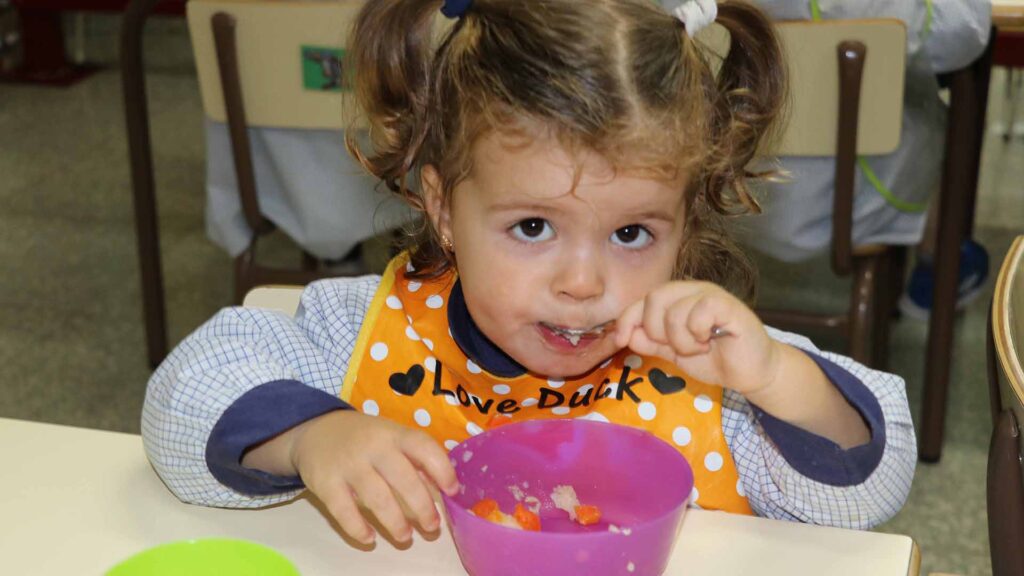
A work that leads them to a BI learner profile (inquirers, open-minded, informed and educated, thinkers, good communicators, upright, reflective, bold, caring and balanced).
“In the infant education stage we have all the necessary learning tools to stimulate and develop the evolution of our little ones. All with the aim of recognising and motivating the potential of each child, to strengthen their self-esteem, initiative and all their learning”, she continues.
“Inquiring, expressing, representing and sharing from the first year of life, allow us to have a quality education based on values, involving qualified and dedicated staff”.
Furthermore, corporal, musical and artistic expression, together with swimming, are integrated in a transdisciplinary way in the educational model of Casvi Villaviciosa.
“Tell me and I forget, teach me and I remember, involve me and I learn”. This fantastic phrase by the politician and scientist Benjamin Franklin also defines the IB methodology implemented from an early age at Eurocolegio Casvi International Private School. In it, the importance of actively involving children in their learning comes to the fore. And this has been the case in their classrooms for a year now. In this way, the student ends up taking on a series of values, skills, contents and multiple competences that will not only serve them in their academic stage. They will also prepare you to develop personally, emotionally and professionally in the future, in an increasingly demanding society.
EARLY SCHOOLING AS A FUNDAMENTAL RIGHT
Early schooling is a fundamental right of all children and an investment in their future. It provides a solid foundation for their all-round development and gives them the tools they need to reach their full potential in life.
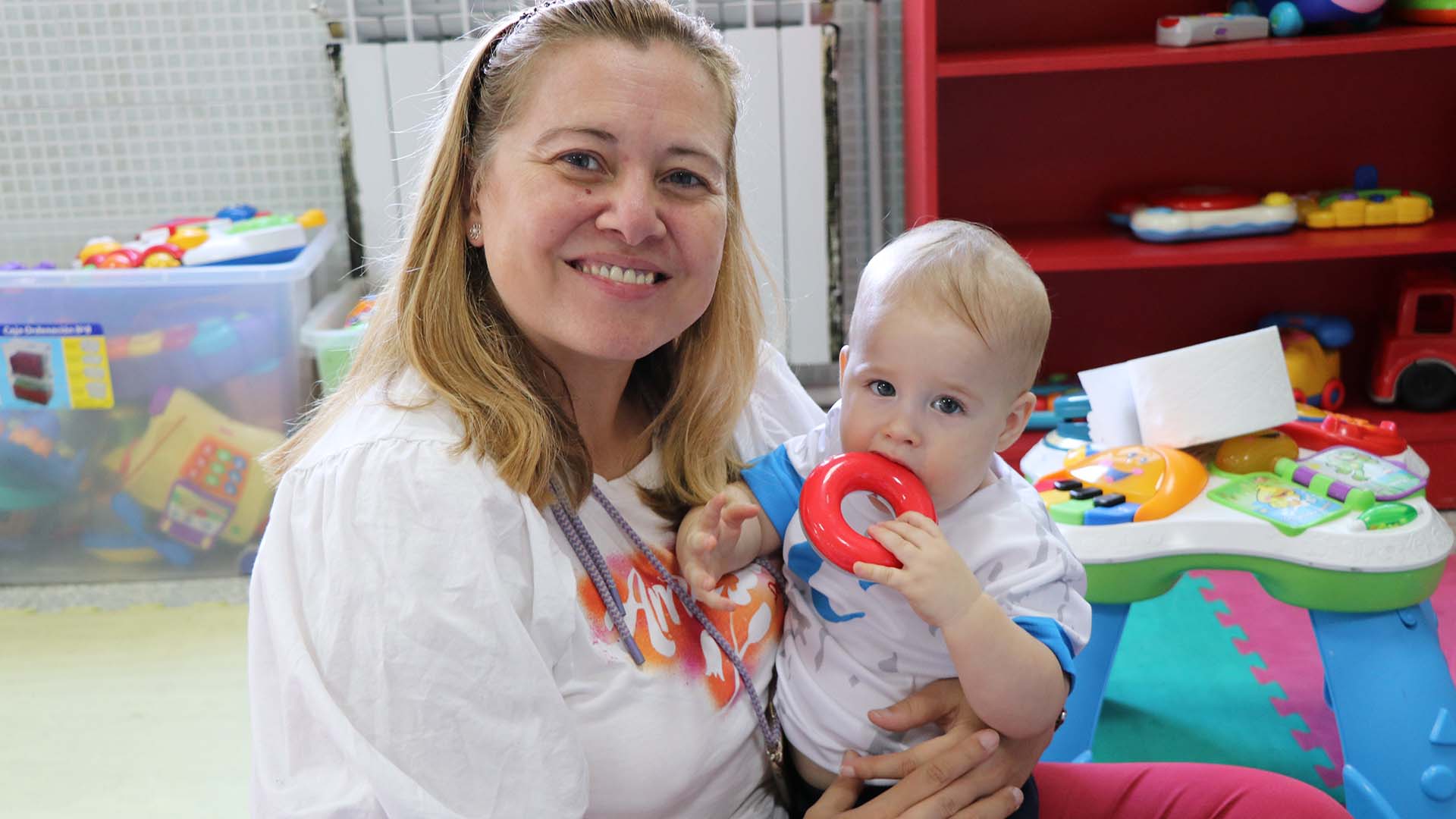
Similarly, there is a need for all stakeholders, including governments, educational institutions, families and society as a whole, to commit themselves to promoting early schooling. This requires concrete actions, such as the expansion of the educational offer, the improvement of the quality of early childhood programmes and the strengthening of collaboration between all actors involved.
In short, early schooling is an investment in the future of our children and in the sustainable development of society. By working together to ensure that all children have access to quality education from an early age, we can build a more equitable, inclusive and prosperous world for future generations. Early schooling is key to success in life and that’s what we believe at Eurocolegio Casvi International Private School!

